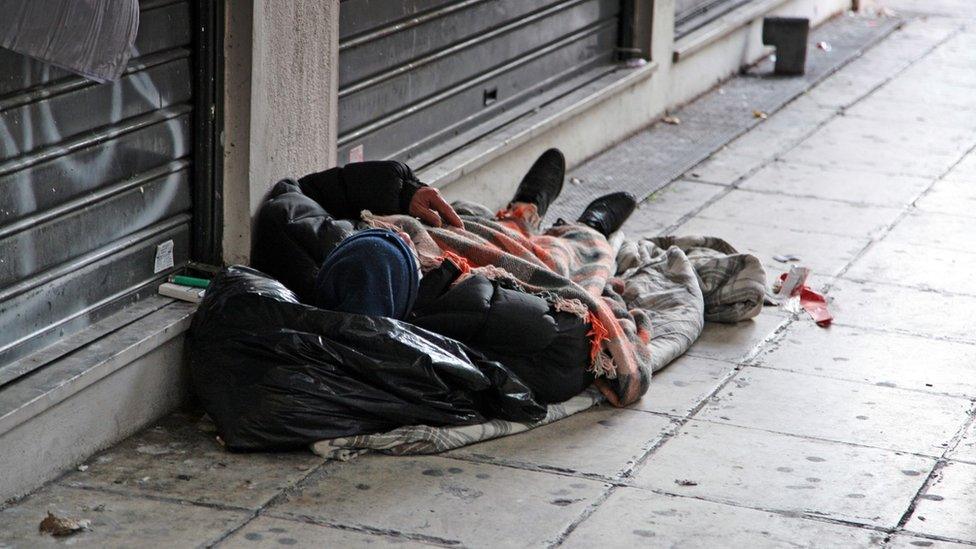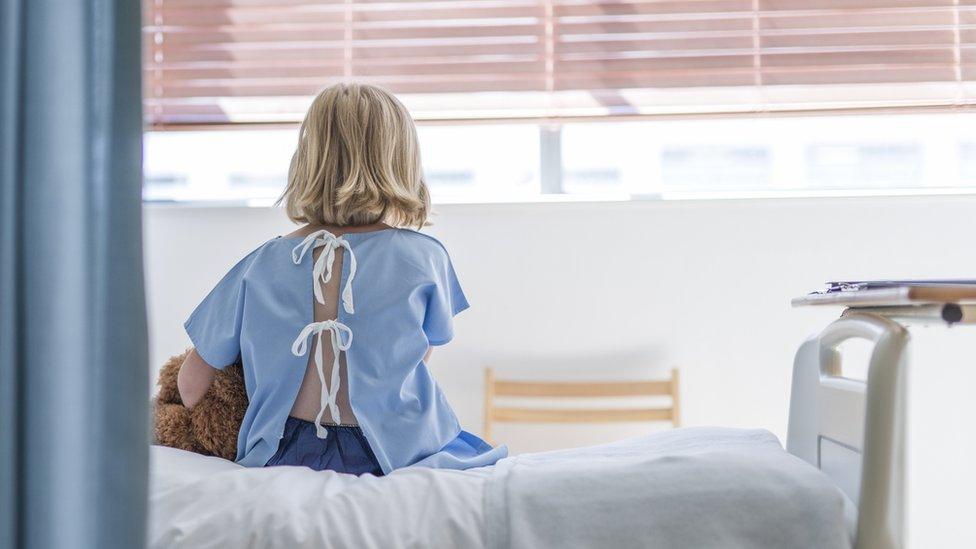Oxfordshire charity helping NHS eliminate Hepatitis C
- Published

Health chiefs said the NHS and charity St Mungo's were working together to eliminate Hepatitis C by 2025
An Oxford charity that works with the homeless is helping the NHS in its bid to eliminate Hepatitis C by 2025.
St Mungo's has partnered with the NHS in a pioneering drug deal and campaign to find and help those at risk.
NHS England said the measures were helping to dramatically cut deaths five years ahead of global targets, putting it on track to become the first country to eliminate the virus.
The charity's teams provide same-day screenings and help with treatment.
It comes after a five-year contract worth almost £1bn across England to buy antiviral drugs for patients which has seen deaths from Hepatitis C, including liver disease and cancer, fall by 35%.
The World Health Organisation had set a target of 10%.

The homeless are more susceptible to Hepatitis C as they do not have easy access to medical services
NHS England has been working with charities like St Mungo's on dedicated "Find And Treat" programmes to help the NHS drive down cases among vulnerable communities, such as the homeless.
Substance use, sharing toothbrushes, razors and other general lifestyle factors associated with sleeping rough are among a range of reasons putting the homeless at a higher risk of contracting the virus.
The project has helped find and cure 70,000 people of the potentially fatal disease and reduced the number of people seeking liver transplants due to Hepatitis C, NHS England said.
'Treatment less invasive'
Professor Sir Stephen Powis, NHS England's national medical director, said the NHS was "leading the world" in the drive to save lives and eliminate Hepatitis C while tackling "significant" health inequality.
Sara Hide, from St Mungo's said: "With treatment now less invasive, we've seen an uptake in people responding to our screening services.
"We also screen for other conditions at the same time to identify clients that might need extra health support."

Follow BBC South on Facebook, external, Twitter, external, or Instagram, external. Send your story ideas to south.newsonline@bbc.co.uk, external.
- Published4 May 2022

- Published6 April 2022
